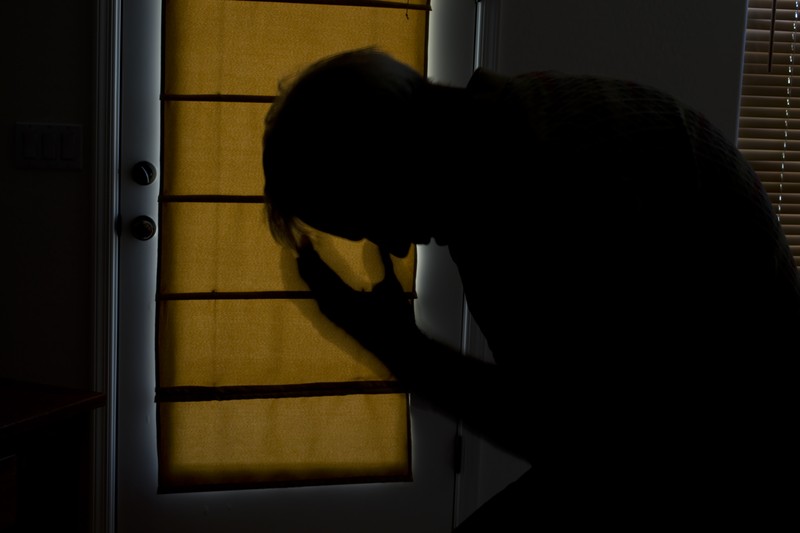When the world stops turning it's foolish to think you'll be able to carry on without feeling a little emotional and psychological damage. Luckily, there are ways to counter this. Check out the tips below for some helpful hints.
Most Likely Mental Health Issues Following a Disaster
Depression is defined as “a state of low mood and aversion to activity that can affect a person’s thoughts, behavior, feelings, and sense of well-being.” Post Traumatic Stress Disorder, hereafter referred to in this article by its acronym PTSD, is defined as an intense psychological distress, marked by horrifying memories, recurring fears, and feelings of helplessness that develop after a psychologically traumatic event. Such would include (but not be limited to) the experiences of combat, criminal assault, life threatening accidents, natural disasters, or rape.Mood disorders are defined as any mental disorder that has a disturbance of mood as the prominent feature. These disorders break down into several categories, and they are as follows: 1. Depressive disorders (a.k.a. unipolar depression), 2. Bipolar disorders, and the next two based on etiology: 3. A general medical condition, and 4. Substance-induced mood disorder.
Instead of envisioning “perfect happy people in a pre-collapse, perfect world,” we must follow a realistic guideline: When things collapse, existing conditions will be worsened and new conditions will arise (regarding mental health and stress).Ensuring a Healthy Mental State After the SHTF
Meditation and simple deep-breathing exercises can be combined with your workouts and improved diet. I usually sit and do deep breathing exercises for 5 – 10 minutes after my workout to relax my mind and muscles. By disciplining yourself into such a routine, your resolve and endurance are strengthened; this translates into an ability to deal with stress when it arises by focusing on control and relaxation. Simple depression is the state that will arise first. Sights and sounds outside of the norm combined with feelings of helplessness and hopelessness are factors contributing to depression.
State of agitation can arise due to the sights and sounds around a person, as well as the loss of family members, injuries, and scenarios too numerous to list in the scope of this article. One of the things we learned in the Army was that you could condition your mind to a certain degree by watching different situations with films or reading books that help acclimate you to things beforehand. It is not a perfect method; however, it conditions the mind to deal with things better when they actually occur.Natural Aids For Depression, PTSD and Mood Disorders
Catnip (Nepeta cataria) is a Nervine, an herb that has an effect on the nervous system when consumed. In stark contrast to the excitability it causes in 75% of cats, catnip has the reverse effect on the human nervous system. It relaxes you while not producing a soporific state and thereby enables a person to function without falling asleep in the middle of whatever they are doing. It can be obtained in tea, tincture, or capsule form. The tea is the most effective. One cup in the morning and one before bed can have excellent results with absolutely no side effects.
Valerian (Valeriana officinalis), a root-based supplement is found in capsules. You can find it at your local Wal-Mart on the shelf in the vitamin section. Valerian is an extremely effective natural sleep aid. The herb is a centrally depressive mild sedative that also has muscle-relaxing qualities. Valerian reduces sleep induction time. A study with 121 patients was administered 600 mg per patient with tinctures of 70% ethanol extracts of the root for 28 days. At the end, 66% reported good or very good ratings of the results. Valerian is contraindicated in those with liver problems due to potential hepatotoxic reactions.
Mugwort (Artemisia vulgaris) has many different beneficial effects. The herb is useful in helping psychoneuroses, neurasthenia, depression, hypochondria, general irritability, restlessness, insomnia, and anxiety. Use of the herb holds no side effects; however, it is contraindicated for use by pregnant women. A tea is prepared by using 1 tsp herb in 150-200 ml of boiling water and steeping for 10 minutes; consume 1 cup 2-3 times per day. Using a 1:1 ratio in 25% ethanol can make extract.
St. John’s Wort (Hypericum perforatum) is approved by medical doctors for depression, and it is taken in 300 mg capsules 3 times per day, with a 0.3% hypericum content. This is a very well acknowledged herbal supplement that helps with feelings of anxiety and depression. It is taken from the aerial parts of the herb (flowers, buds, and leaves). It has no side effects and will not make you sleepy. The herb can be found in your local Wal-Mart in the vitamin section.
Just as most doctors would recommend diet and exercise, combined with a little bit of unwinding meditation time, in the present world to combat stress, so too should you utilize this advice when SHTF.
Making sure you expose yourself to the ideas of the things you may be coping with, such as through books or movies, is also an excellent method of preparing your mind to cope with these things in the real world.
If you're still feeling stressed or wrung out, give the herbal supplements a try. They are incredibly cheap and easy to stock up on and will do wonders for your ailing psyche.
For more advice like this, check out Ready Nutrition.
